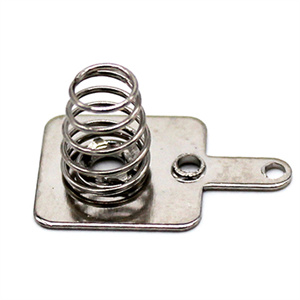Electrical contacts are widely used in the transportation industry. They play an important role in ensuring the normal operation of the electrical system, improving safety and reliability.
Electrical system connection
Core role: Electrical contacts are an indispensable part of the electrical system. They are responsible for connecting wires, cables and electronic equipment together to ensure smooth current transmission and stable signal transmission.
Application scenario: Electrical contacts are required to be used to realize electrical connection in various fields of vehicles, such as power system, lighting system, signal system, control system, etc.
Safety and reliability
Importance: Safety and reliability of electrical contacts are essential because vehicles are subjected to complex environmental conditions and mechanical stresses during driving.
Application example: In electric vehicles, Electrical Contacts are used to connect key components such as battery pack, motor and controller to ensure stable current transmission and normal operation of the system. In addition, in vehicles such as high-speed trains and aircrafts, Electrical Contacts also need to withstand the vibration and impact caused by high-speed movement, so their quality and reliability requirements are higher.
Customized design
Meeting specific needs: Due to differences in electrical systems between different means of transport, the design of Electrical Contacts needs to be tailored to specific needs.
Application case: For example, in the battery management system of electric vehicles, electrical contacts with special shapes and sizes may be required to adapt to the layout and connection requirements of the battery pack. In addition, some high-end vehicles also need to use electrical contacts with special functions, such as waterproof, dustproof, anti-corrosion, etc.
Technological innovation and development trend
Application of new materials: With the continuous development of new material technology, more and more high-performance materials are used in the production of electrical contacts, such as superalloy, high conductivity copper alloy, etc. These materials help to improve the electrical conductivity, mechanical strength and corrosion resistance of electrical contacts.
Digitalization and intelligentization: with the development of transportation tools towards digitization and intelligentization, electrical contacts also need to have a higher intelligent level. For example, some advanced electrical contacts can monitor the electrical connection status in real time and automatically disconnect in case of abnormal conditions to avoid safety accidents.
